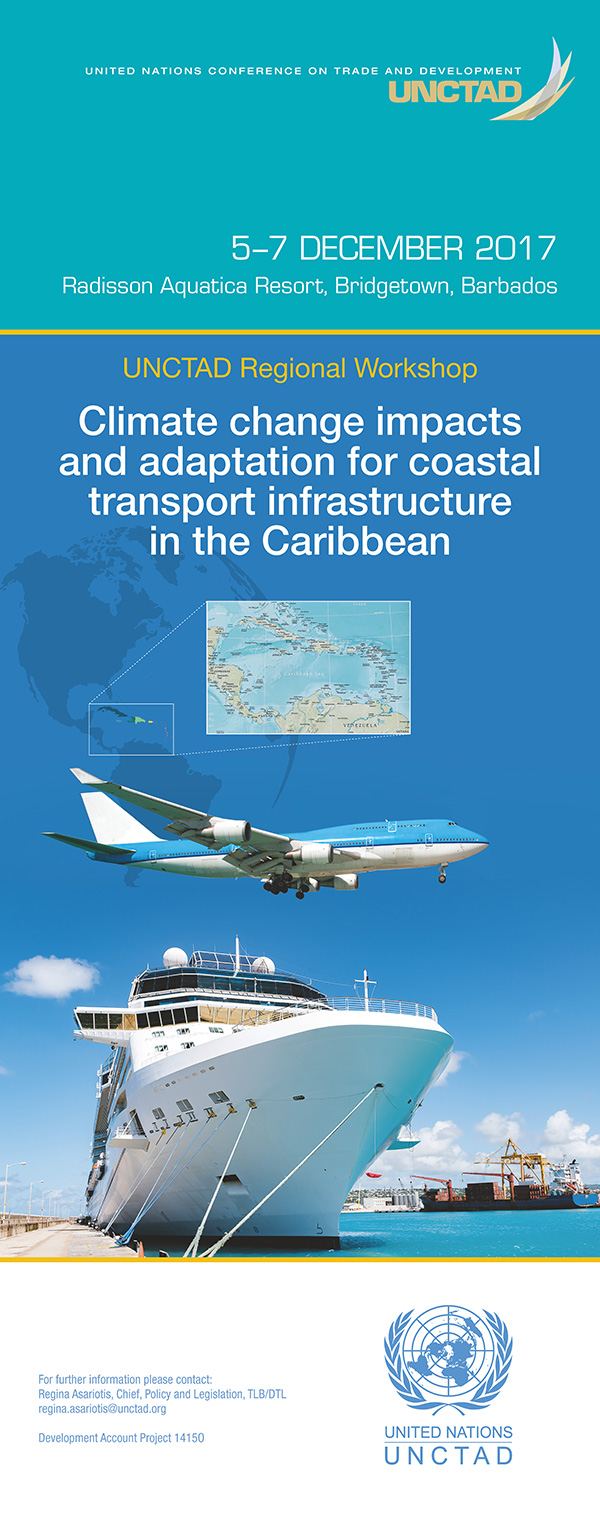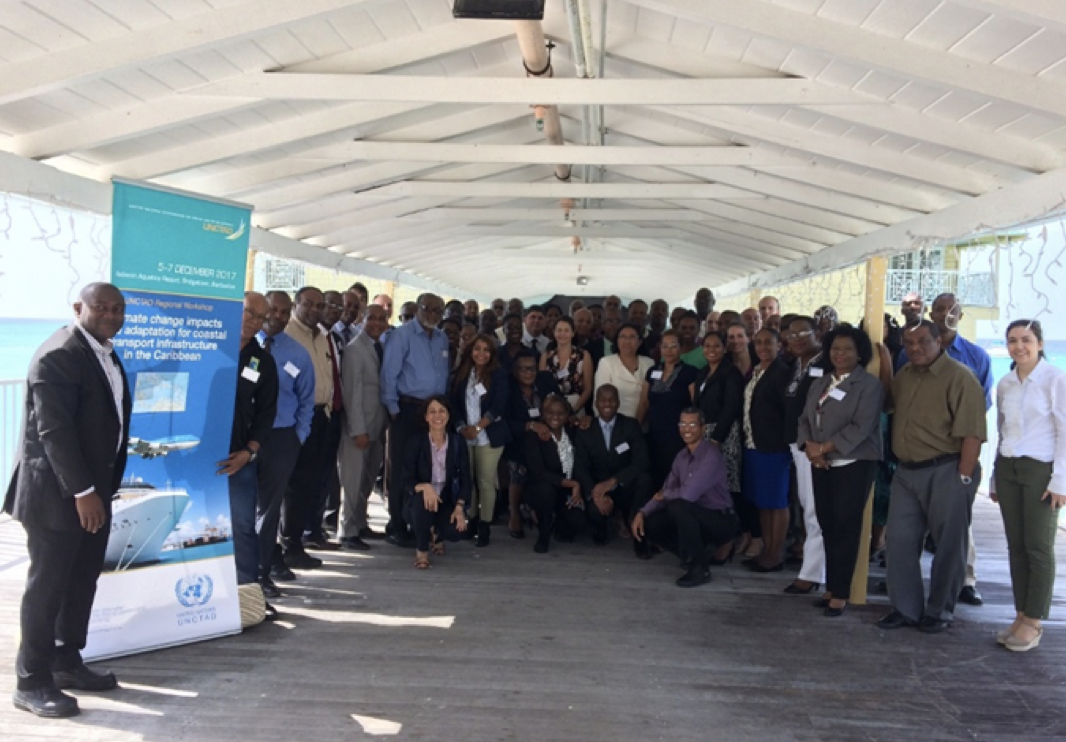UNCTAD was in Barbados on 5-7 December 2017 to deliver a regional capacity building workshop on “Climate Change Impacts and Adaptation for Coastal Transport Infrastructure in the Caribbean”
Key Issues
A regional capacity-building workshop was held in Barbados (5-7 December 2017, Bridgetown, Barbados), bringing together seaports and airports authorities as well as a range of other stakeholders, experts, development partners, and organizations from the wider Caribbean region (21 countries and territories). The regional workshop provided an opportunity to present and discuss the findings of the national case studies for Jamaica and Saint Lucia, and to provide demonstrations and training on the’ Climate Risk and Vulnerability Assessment Framework for Caribbean Costal Transport Infrastructure’ developed under the project.
In the light of the impacts of the devastating hurricane season of 2017, the regional workshop also served as an important topical forum for exchange and discussion of collaborative action amongst stakeholders in the region. In addition to presentations, demonstrations, and training led by the project team, a series of high quality expert presentations complemented the programme. Speakers and resource persons included experts from relevant international and regional organizations (OECS, UNDP, UNECLAC, CCCCC, ECJRC, CTO, CARICOM, Airports Council International (ACI), CDB, ACP), as well as leading international and regional academic researchers.
Programme


Presentations
Background, Project objectives and Overview, Regina Asariotis, UNCTAD
Climate Change Projections for the Caribbean and Implications for Air and Sea Ports, Leonard Nurse, University of the West Indies
A coastal impact assessment framework under dynamic physical and socio-economic scenarios along SIDS, Michalis Vousdoukas, European Commission, Joint Research Centre
Coastal Transport Infrastructure in the Caribbean – Economic Implications of the Recent Disasters, Willard Phillips, UN-ECLAC Subregional Headquarters for the Caribbean
Perspectives on Climate Change and DRR in Coastal Transport Infrastructure in the OECS, Crispin D’Auvergne, Organisation of East Caribbean States Commission
Adaptation and DRR portfolio of UNDP Barbados and the OECS in the Eastern Caribbean, Mizushi Satoh, UNDP Barbados and the OECS
Case Study Jamaica: approach, methods and key findings, David A.Y. Smith, Smith Warner International Ltd.
Case Study Saint Lucia: approach, methods and key findings, Isavela Monioudi, University of the Aegean
Examples of sea level rise adaptation from ports in Japan and Indonesia, Miguel Esteban, University of Tokyo
GIS Inventory and Risk Assessment for Critical Coastal Infrastructure Land Use in Caribbean SIDS, Austin Becker and Gerald Bove, University of Rhode Island
Climate Risk and Vulnerability Assessment Framework for Caribbean Coastal Transport Infrastructure, Cassandra Bhat, ICF
Applying the operational thresholds method, Isavela Monioudi, University of the Aegean
Identifying operational thresholds for vulnerability assessments – breakout sessions, Cassandra Bhat, Austin Becker and Gerald Bove, ICF and University of Rhode Island
Gathering and applying climate information for decision-making, Cassandra Bhat, ICF
Addressing the challenge of climate change adaptation and resilience building for key international transportation assets: Perspectives, John Lengel, Airports Council International
Addressing the challenge of climate change adaptation and resilience building for key international transportation assets: Perspectives, Pauline Yearwood, CARICOM Secretariat
Addressing the challenge of climate change adaptation and resilience building for key international transportation assets: Perspectives, Jennifer Barrow, Caribbean Tourism Organization
Climate Finance Issues, Derek Gibbs, Caribbean Development Bank
Seagrasses in Jamaica – Dr Pascal Peduzzi (UNEP-GRID)
Sponsor / funding: UN Development Account
Language(s): English
Contact: Policy.Legislation@unctad.org
Policy and Legislation Section/Trade Logistics Branch
Related Sites: UN Development Account – Climate Change and Maritime Transport
UNCTAD Meetings website